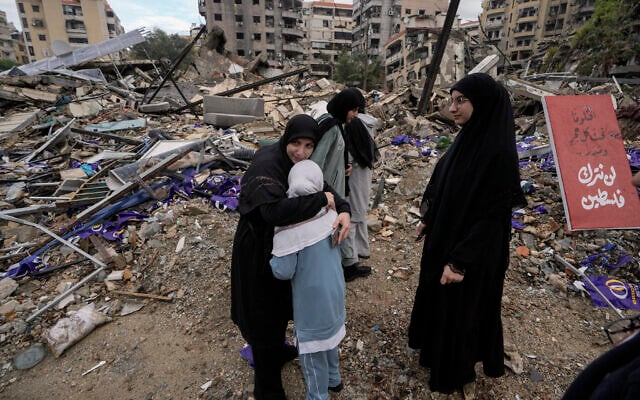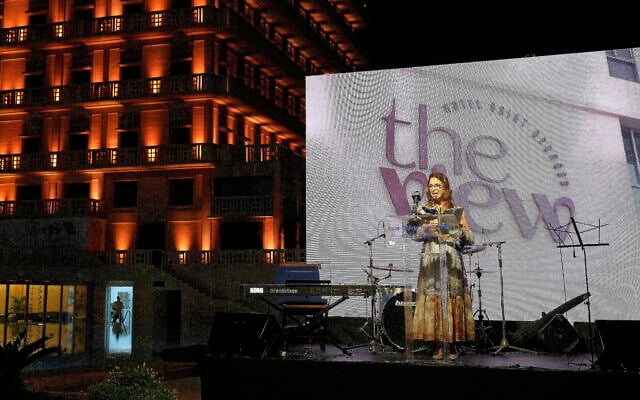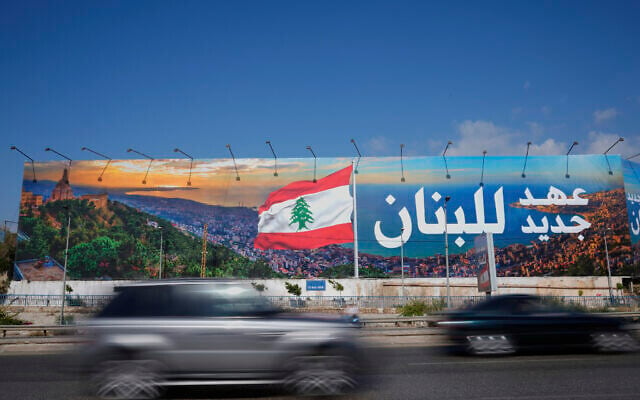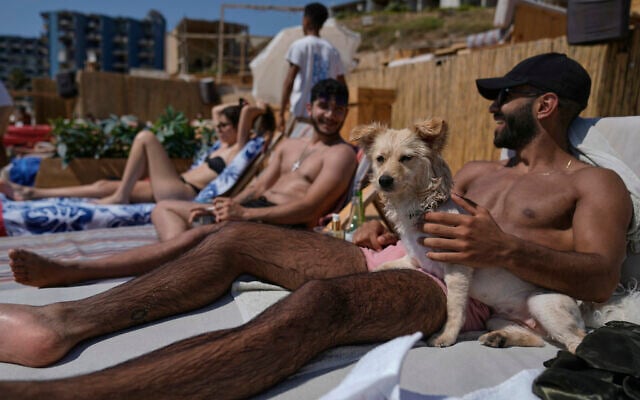


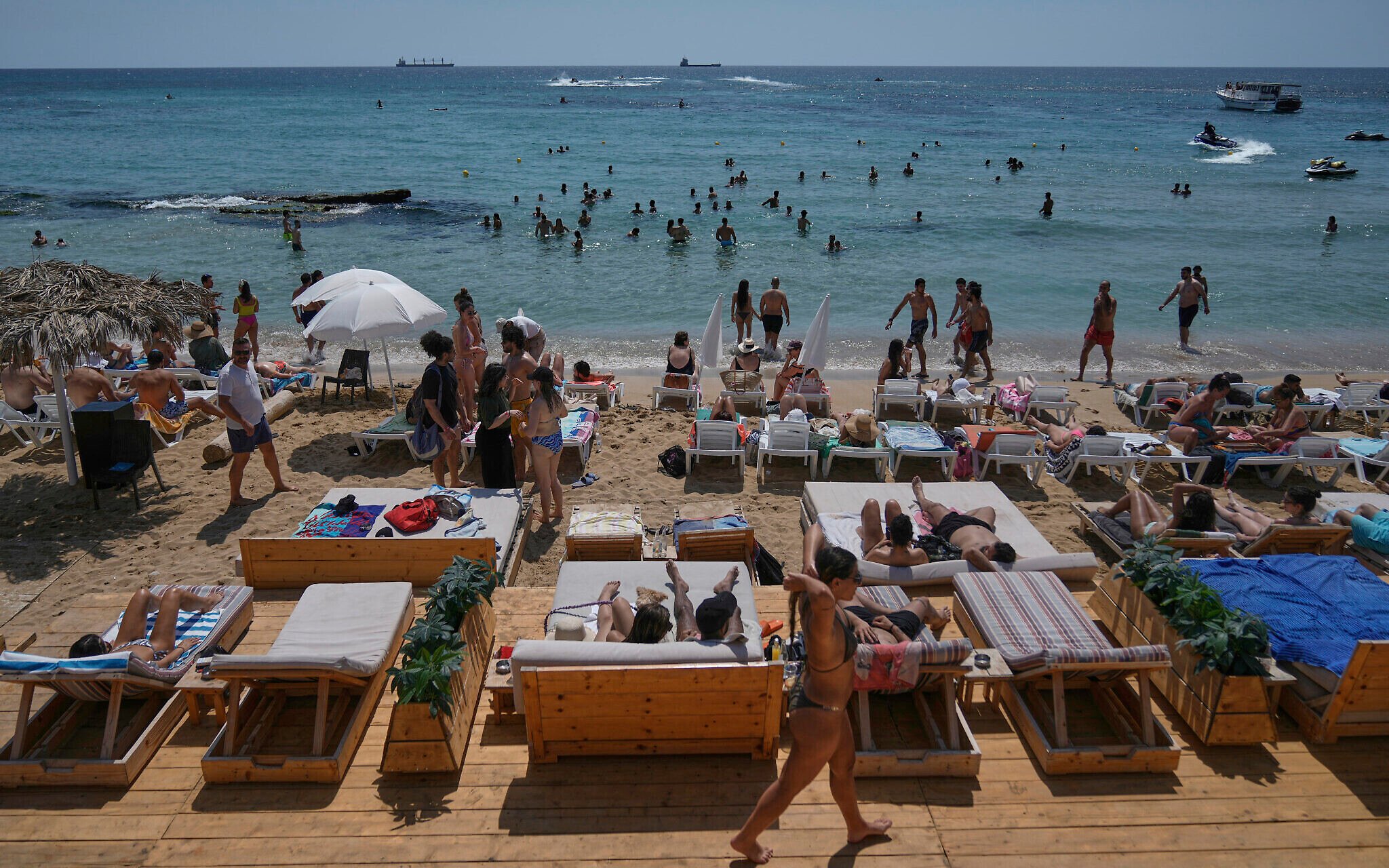
BEIRUT — Fireworks lit up the night sky over Beirut’s famous St. Georges Hotel as hit songs from the 1960s and 70s filled the air in a courtyard overlooking the Mediterranean Sea.
The retro-themed event was hosted last month by Lebanon’s Tourism Ministry to promote the upcoming summer season and perhaps recapture some of the good vibes from an era viewed as a golden one for the country.
In the years before a civil war began in 1975, Lebanon was the go-to destination for wealthy tourists from neighboring Gulf countries seeking beaches in summer, snow-capped mountains in winter and urban nightlife year-round.
In the decade after the war, tourists from Gulf countries – and crucially, Saudi Arabia – came back, and so did Lebanon’s economy. But by the early 2000s, as the Iran-backed terror group Hezbollah gained power, Lebanon’s relations with Gulf countries began to sour. Tourism gradually dried up, starving its economy of billions of dollars in annual spending.
Hezbollah has been battered in the 14 months of war it launched against Israel on October 8, 2023, a day after the Hamas onslaught that sparked the war in Gaza.
Lebanon’s new political leaders, who came to power in the weeks after the November 27 Israel-Hezbollah ceasefire agreement, sense an opportunity to revitalize the Lebanese economy once again with help from wealthy neighbors.
The Lebanese government aims to disarm Hezbollah and rekindle ties with Saudi Arabia and other Gulf countries, which in recent years have prohibited their citizens from visiting Lebanon or importing its products.
“Tourism is a big catalyst, and so it’s very important that the bans get lifted,” said Laura Khazen Lahoud, the country’s tourism minister.
On the highway leading to the Beirut airport, once-ubiquitous banners touting Hezbollah’s leadership have been replaced with commercial billboards and posters that read “a new era for Lebanon.”
In the center of Beirut, and especially in neighborhoods that hope to attract tourists, political posters are coming down, and police and army patrols are on the rise.
There are signs of thawing relations with some Gulf neighbors. The United Arab Emirates and Kuwait have lifted years-long travel bans.
All eyes are now on Saudi Arabia, a regional political and economic powerhouse, to see if it will follow suit, according to Lahoud and other Lebanese officials.
A key sticking point is security, these officials say, as strikes have continued in Hezbollah strongholds in Lebanon’s east and south. Under the ceasefire deal with Hezbollah, Israel reserved the right to take out imminent threats by the terror group, which was required to vacate southern Lebanon.
On Thursday, Israel struck what it said were underground Hezbollah drone factories in southern Beirut, reportedly after the Lebanese military failed to act. The strikes were preceded by an evacuation warning to residents.
As vital as tourism is — it accounted for almost 20% of Lebanon’s economy before it tanked in 2019 — the country’s leaders say it is just one piece of a larger puzzle they are trying to put back together.
Lebanon’s agricultural and industrial sectors are in shambles, suffering a major blow in 2021, when Saudi Arabia banned their exports after accusing Hezbollah of smuggling drugs into Riyadh. Years of economic dysfunction have left the country’s once-thriving middle class in a state of desperation.
The World Bank says poverty nearly tripled in Lebanon over the past decade, affecting close to half its population of nearly 6 million. To make matters worse, inflation is soaring, with the Lebanese pound losing 90% of its value, and many families lost their savings when banks collapsed.
Tourism is seen by Lebanon’s leaders as the best way to kickstart the reconciliation needed with Gulf countries — and only then can they move on to exports and other economic growth opportunities.
“It’s the thing that makes most sense, because that’s all Lebanon can sell now,” said Sami Zoughaib, research manager at The Policy Initiative, a Beirut-based think tank.
With summer still weeks away, flights to Lebanon are already packed with expats and locals from countries that overturned their travel bans, and hotels say bookings have been brisk.
At the event hosted last month by the tourism ministry, the owner of the St. Georges Hotel, Fady El-Khoury, beamed. The hotel, owned by his father in its heyday, has acutely felt Lebanon’s ups and downs over the decades, closing and reopening multiple times because of wars. “I have a feeling that the country is coming back after 50 years,” he said.
On a recent weekend, as people crammed the beaches of the northern city of Batroun, and jet skis whizzed along the Mediterranean, local businesspeople sounded optimistic that the country was on the right path.
“We are happy, and everyone here is happy,” said Jad Nasr, co-owner of a private beach club. “After years of being boycotted by the Arabs and our brothers in the Gulf, we expect this year for us to always be full.”
Still, tourism is not a panacea for Lebanon’s economy, which for decades has suffered from rampant corruption and waste.
Lebanon has been in talks with the International Monetary Fund for years over a recovery plan that would include billions in loans and require the country to combat corruption, restructure its banks, and bring improvements to a range of public services, including electricity and water.
Without those and other reforms, Lebanon’s wealthy neighbors will lack confidence to invest there, experts said. A tourism boom alone would serve as a “morphine shot that would only temporarily ease the pain” rather than stop the deepening poverty in Lebanon, Zoughaib said.
The tourism minister, Lahoud, agreed, saying a long-term process has only just begun.
“But we’re talking about subjects we never talked about before,” she said. “And I think the whole country has realized that war doesn’t serve anyone, and that we really need our economy to be back and flourish again.”

